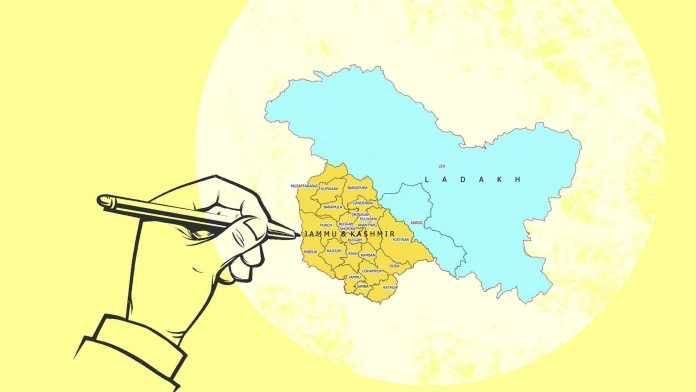- Ever since the Union Government abrogated Article 370 and 35(A) governing the erstwhile state of Jammu & Kashmir by designating the region as Union Territories, the local political parties are sparing no efforts in castigating the authorities to reverse the law. The Union Government has stood firm on the aspect but vociferously assuring to usher in statehood once the Delimitation Commission concludes its mandate. As you are aware, the results of the exercise carried out by the J&K Delimitation Commission are in the public domain even though the proposals have not been published in the gazette.

PC: oscareducation
- As per the published report, Jammu is to get six more seats in the proposed assembly, and Kashmir will be given one more seat. The resultant outcome is it will lead to a split of 43 seats for Jammu and 47 to Kashmir in a 90-member assembly. No sooner than the information was out, Kashmir’s politicians, rarely on the same page with the Administration, are unanimous in proclaiming that their region has got a raw deal. Of course, they still have time to convince the Commission though. For the uninitiated, the J&K Delimitation Commission is a unique body, owing to its existence to the provisions of the Jammu and Kashmir Reorganization Act, 2019.
- The terms of reference for the Commission are set in the Act. In addition to population, other aspects such as physical features, communication, and conveniences were to be considered in the delimitation exercise. To place the extraordinary situation of J&K in perspective, it’s prudent to consider the case of Andhra Pradesh’s bifurcation. Note that the 2014 AP reorganization law states that the assembly seats in the successor states will be increased. However, that exercise has been put off till the first census after 2026, which is when there can be a national delimitation exercise to ascertain the number of seats incommensurate with the population. It is not out of place to mention that the exercise must reflect political aspirations too.

PC: pch.vector
- Mind you, that the nub of the matter and the very reason for the Commission now to engage politicians from Kashmir is to get them on board. Advancing the delimitation exercise for just J&K serves no purpose if it cripples a nascent political process. As such, reactions to this exercise should also make us rethink the forthcoming national delimitation exercise. Moreover, the Constitution initially linked Lok Sabha seats allotted to a state to its population. Subsequent amendments froze the population reference point to the 1971 Census till the first census after 2026. Ostensibly, it’s meant to protect states that took a lead in lowering fertility rates.
- Delving further, a delimitation exercise represents a shift in political power. As the population is the main basis of seat allocation, an inherent problem is it dilutes the political clout of states and regions that have done well in realizing the goal of population control. As such, it makes imminent sense to avoid a national delimitation exercise because of the danger of unintended consequences. To conclude the argument, the Commission in J&K should find a way to address the fears of Kashmir before it publishes its outcome. Otherwise, the painstaking exercise might turn out to be a futile endeavour without the backing of the real stakeholders.






